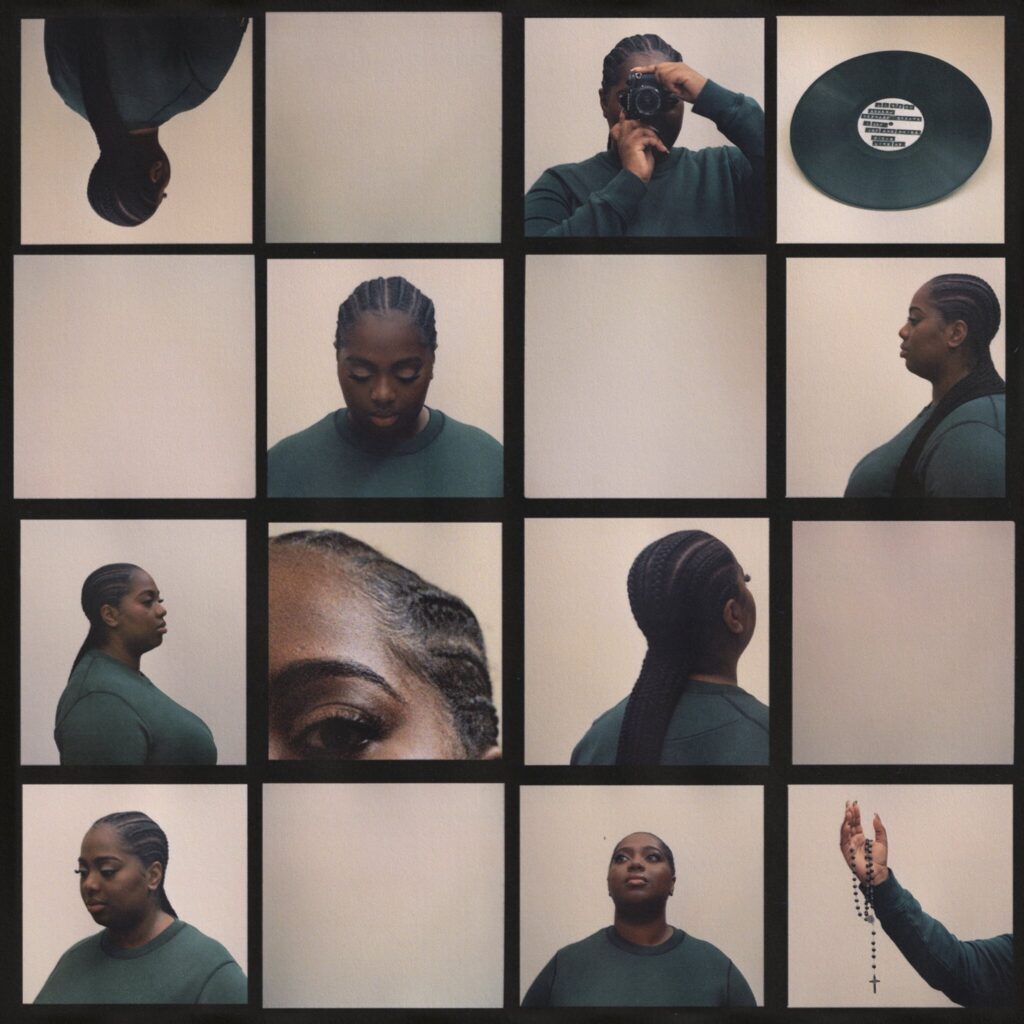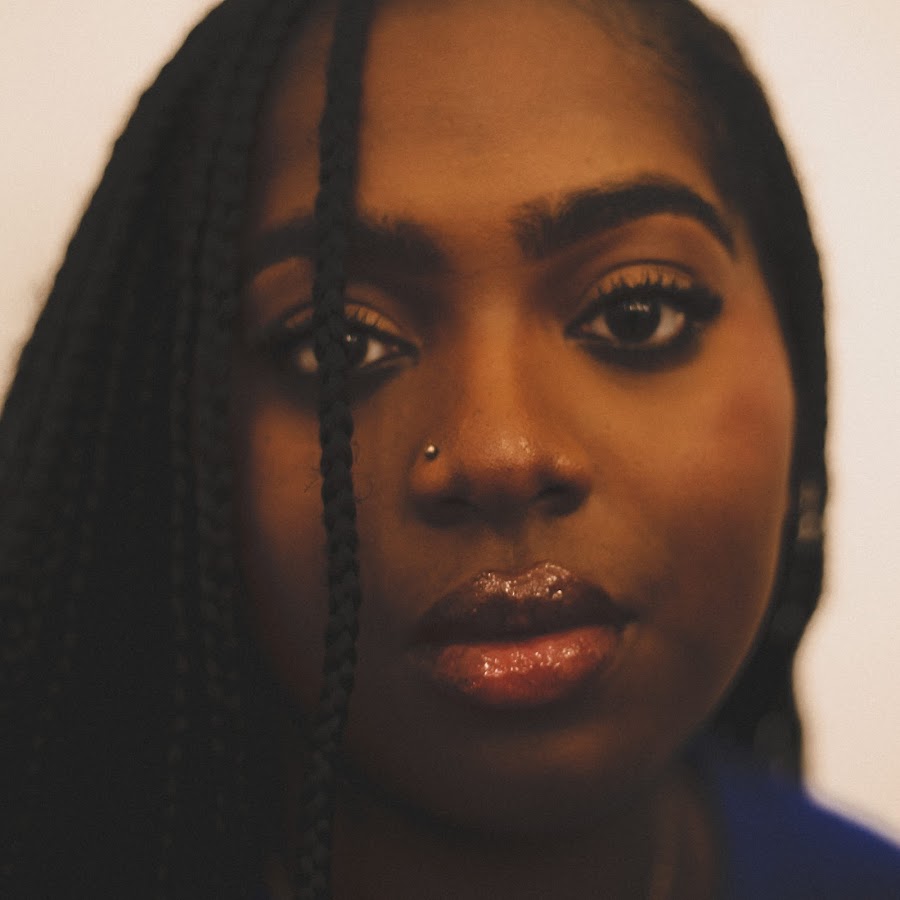Litany encapsulates expressions of grief, reflecting the artiste’s ability to transform pain into art and create a meaningful connection with her audience.
By Hope Ibiale
Prior to unveiling her debut single “Sorrow,” British-Cameroonian R&B singer and songwriter, Konyikeh, made a notable appearance alongside British rapper, Dave, during the 2022 BRIT Awards. Her captivating on-stage presence became the highlight of the performance, establishing a resonating atmosphere throughout their rendition. Konyikeh’s voice emerges from a deep, that even when the songs end, the imagery evoked by her music lingers in listeners’ minds.
Konyikeh grew up to music from the likes of Jennifer Hudson and Destiny’s Child, as well as listening to classical music. She developed an interest in the art form and began singing when she was eleven. Years later, she became a music scholar and spent numerous weekends learning how to play the piano and violin at the Guildhall School of Music and Drama. After nurturing her interest in music, and with her stunning debut single, Konyikeh has emerged with a five-track EP, Litany.
Litany, for one, means a simple, repetitive prayer. But it can also refer to an expression of grief. Both meanings resonate with the inspiration behind this project. While speaking about the EP with Clash Magazine, Konyikeh said, “It’s kind of a little prayer to soothe yourself,” then she added, “And the things that I wrote in my teenage years that held me together; these are songs from the darkest time in my life. They’re like little prayers to myself.” On the EP, Konyikeh masterfully explores both meanings and bares her soul throughout the five songs.
Brooding guitar strings start off the opening track, “Sorrow.” In the melancholy single, Konyikeh sings about the end of a relationship and the pain that accompanies the most invested party. The song is enriched by Konyikeh’s ability to comfortably sit in the third-person narrative and explore the insides of a romantic tussle. “She sings about lust, he sings about sorrow,” Konyikeh sings, allowing the listener into the layers that each character embodies.
(Read also: “Lifesize Teddy” Review: Mavin Records’ Newest Star Arrives With a Bang on Her Debut EP)
While stripping down the song’s lyrics, I discovered that Konyikeh wrote “Sorrow” when she was fourteen. It made me wonder about the singer’s teenage mind. The emotions she must have felt to delve into such mature themes. The song’s depiction of images of love, and the pain from heartbreak and abandonment piqued my curiosity about Konyikeh’s teenage imagination. I’m inclined to believe that she sang about the feelings she was surrounded with. “Sorrow” pulls listeners into Konyikeh’s world, accompanied by sparse drums playing in the background. The song’s production further elevates the listening experience and beautifully complements Konyikeh’s voice.
The visuals for “Sorrow” also reflect the song’s brooding features. The video starts with children playing in the hallway, and transitions to Konyikeh preparing for a family portrait. But as each scene unravels, viewers can see that the happy family portrait disguises the sadness that envelopes the family. As Konyikeh’s vocals emerge in each scene, viewers peer into the struggles of each family member, reckoning the thin bond that they all share.
On the next track, “Teenage Dreams,” Konyikeh reflects on her teenage years. Here, she sings about her teenage struggles; making comparisons between herself and other teenage girls, her rejections, and having a lover who never shared her dreams. Over the mid-tempo production, she sings, “Our teenage dreams were different in nature.” Konyikeh takes the place of a first-place narrator in “Teenage Dreams.” It is unlike in “Sorrows,” where she took the narrative in the third person. Here, she lets listeners take a glimpse of her experiences and how these have shaped her and played a role in her songwriting. As you pay close attention to the project, each song mirrors a part of her life, with each word embodying scenes she has watched unfold in the lives of others.

“I cry every time he said, I die a bit inside, she said,” is the first thing I hear on “I Cry.” These lines encapsulate the realities of individuals who put on the mask of perfection. She says, “They all clap and scream. Feed the fake reality.” Konyikeh also sings about leaving a toxic relationship as she decides to let go of the momentary delight that comes with toxicity.
(Read also: “Solace” Review: Uncle Waffles Shows Off Her Brilliance on Her Amapiano-Pivoted EP)
Konyikeh expresses her longing for a past lover in “Joy and Pride.” With this song, the artiste unapologetically begs for another chance with her ex-lover and is needy enough to embrace the toxicity of the proposed love affair. Her longing is apparent in the drawn-out syllables of the chorus as she asks, “Am I still your joy and pride?” When Konyikeh says, “You told me how to dare to dream and not fall to my knees/Seasons came and changed, I thought you would stay the same,” she deviates from wanting back her lover to addressing a relationship between a parent and child. As the song’s tempo increases, the artiste yearns for true love – from her ex-lover, and from her parents. The music video for “Joy and Pride” continues the story told in the visuals of “Sorrow.” Viewers are, once again, are shown a dwindling family relationship.

Litany takes a bow with “Girls Like Us.” In this song, Konyikeh captures the realities of being a Black girl, and the obstacles that the colour of her skin can pose. As she tells Clash Magazine, “Being a dark-skin Black girl, as a teenager, love was a somewhat confusing subject.” She reiterates this point in “Girls Like Us.” When she sings, “Cause love don’t come easy to some, so when it comes to girls like us, I just take it and run,” she shows two sides of herself. First, she wholeheartedly accepts her fate of never experiencing true love, but on the other hand, she clings to whatever love comes her way. “Girls Like Us” is an ode to every Black girl. Konyikeh sings from a place of experience, encouraging other girls who face similar struggles.
After repeatedly listening to Litany, it becomes evident that Konyikeh immersed herself in the fabric of this project. These aren’t just songs, they are phases of Konyikeh’s life. The project took over six years to make, and it is apparent that Litany was well put together. Each song is filled with well-curated melodies that make you stop and listen. Konyikeh delivers stirring, meditative pieces that recall listeners to their pain. Litany encapsulates expressions of grief, reflecting the artiste’s ability to transform pain into art and to create a meaningful connection with her audience.
(Read also – Rush Review: Hamzaa Explores Vulnerability in Her New EP)
Konyikeh’s lyrical prowess shines throughout the EP as she navigates the pain and resilience that come with young adulthood. “Teenage Dreams” offers a poignant reflection on the struggles of adolescence, while “I Cry” and “Joy and Pride” explore toxic relationships and a yearning for acceptance. In “Girls Like Us,” Konyikeh channels her experiences as a dark-skinned Black girl, crafting a powerful anthem that resonates with anyone who has faced similar challenges.
Konyikeh’s musical evolution is deeply rooted in authenticity and vulnerability. Her ability to convey raw emotions through her evocative voice and poignant songwriting establishes her as an artiste who fearlessly embraces her experiences and encourages others to do the same. This project is a compelling journey through the heart and mind of Konyikeh, offering a glimpse into the intimate struggles and triumphs that shape her identity as an artiste and as a person. As she continues to share her stories through music, Konyikeh is undoubtedly a significant voice in the contemporary R&B landscape.
Lyricism – 1.9
Tracklisting – 1
Sound Engineering – 1
Vocalisation – 1.4
Listening Experience – 1.5
Rating – 6.8/10
Hope Ibiale is a writer and book lover.




